Students embark on a new Journey this fall
New general education curriculum, debuting this fall, created as a 10-step journey to boost student investment and community.
By Janel Shoun-Smith | 615-966-7078 |
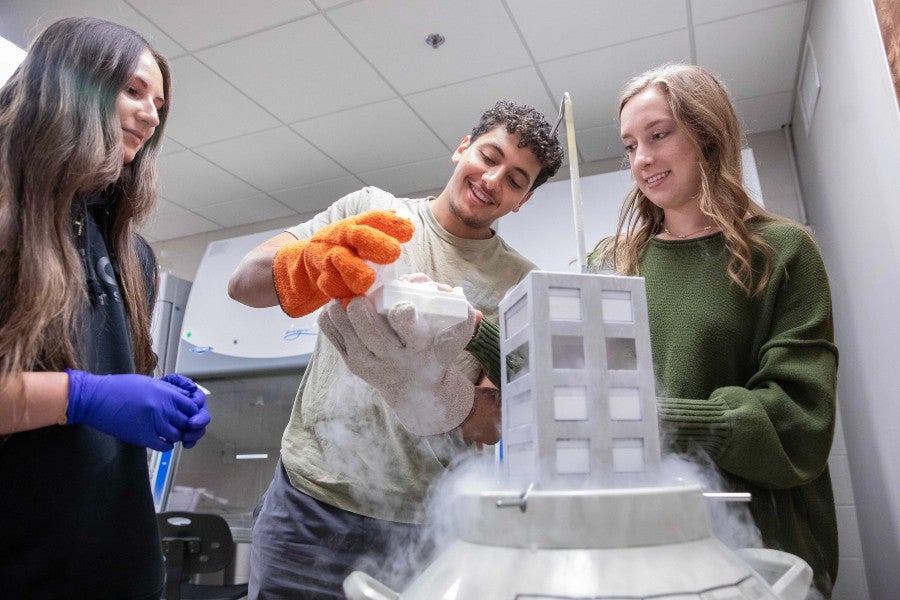
Learn more about how Journey was developed.
Learn more about how Journey connects essential core skills to vocational preparation.
Every first-time college student knows they are embarking on a journey. As they step on the path for the first time as a college student, they know the route may hold joyful experiences, grand adventures and probably even stumbling blocks.
Most, if not all, however, have little idea where that journey will end. They may have a dim view of the destination, but as they learn about themselves and the world around them, majors often change, life circumstances can evolve and they often arrive at a place they never expected.
This fall, Lipscomb University is debuting a new purpose-driven general education curriculum, intended to be a guide, ensuring that every student develops the skills, knowledge and spiritual grounding necessary for purposeful living, no matter what their destination becomes.
No matter the career field or where each student starts from, Lipscomb’s new Journey: Lipscomb Core invites students to embark a transformative academic journey to Seek, Discover, Know and Flourish.
Journey has been in the works since the 2022 launch of the university’s Lipscomb Impact 360 strategic plan, which has as its No. 1 goal to provide a premier, learner-focused Christian education. This fall, Journey supersedes Lipscomb’s pre-existing general education curriculum, which serves as the foundation of every undergraduate student’s learning experience in their freshman and sophomore year.
The framing of the new general education curriculum as a journey toward a Christ-centered vocation and flourishing life is intended to boost students’ investment in their freshman and sophomore studies, said Lipscomb Provost Jennifer Shewmaker.
“When students enter college thinking of gen ed courses as ‘something to just get out of the way,’ it has no meaning. When things don't have meaning, then we as people don't tend to put much effort into them,” said Shewmaker.
“We also don't tend to integrate that meaningless experience into the rest of our life experience. The new Journey curriculum strives to create meaningful connections for students by saying very explicitly, ‘You are on a path, and along the way you are going to learn these specific things, and those things are going to connect to what you want to do as a career and in life in this specific way.’”
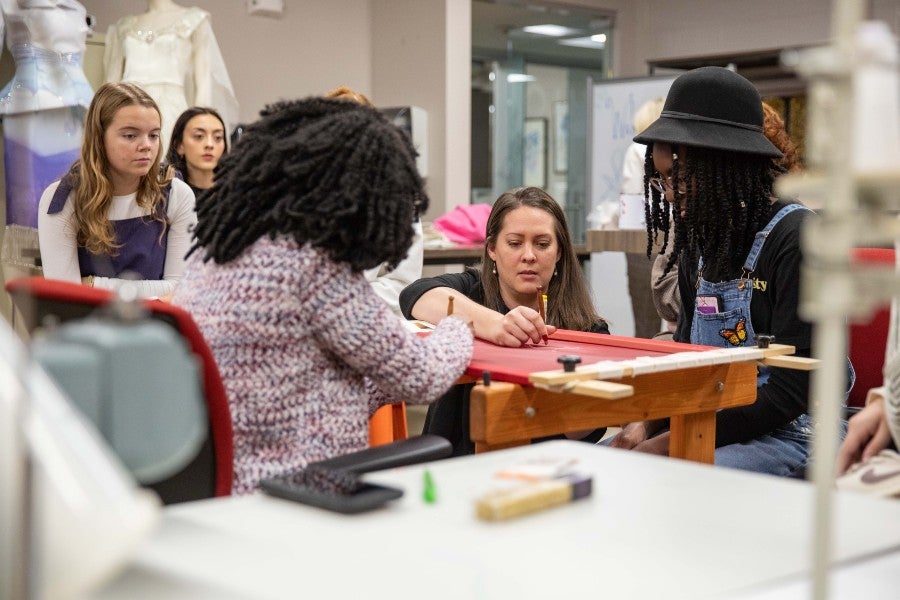
Drawing on a strong body of research on high-impact practices in higher education, Journey has been intentionally designed with course milestones to enhance consistency in learning outcomes, shared learning experiences and strong community among engaged learners.
In addition, the Journey curriculum was crafted to strongly connect Lipscomb’s liberal arts instruction in the first two years of college to the vocational preparation in the second two years of college, as well as to integrate Lipscomb’s Student Life experiences and programming from the Center for Vocational Discovery, which offers spiritual and life discovery activities to unify a student’s four-year college experience.
The term “liberal arts” within an educational curriculum dates back to classical antiquity in the West, consisting of seven areas that Plato argued were the essential skills and fields of knowledge required to produce a free, well-educated citizen: grammar, logic, rhetoric, arithmetic, astronomy, music and geometry.
While today, we may talk about critical thinking a lot more than logic, problem-solving a lot more than arithmetic, communication rather than grammar, the sentiment that these skills are valuable to society, the economy and civic life has not faded away.
In fact, according to surveys of employers by Forbes and the American Association of Colleges and Universities (AAC&U), 95% of employers look for job candidates who can think clearly, solve problems and communicate effectively. Also, 88% of employers look for broad knowledge in the liberal arts and sciences, and 93% say these skills are more important than a candidate’s college major.
Specific core texts in literature and philosophy have been chosen to use throughout general education class sections, guided by a compendium of “Great Ideas” compiled by Lipscomb’s own Richard Goode, professor of history, and Caleb Clanton, distinguished university chair in philosophy and humanities.
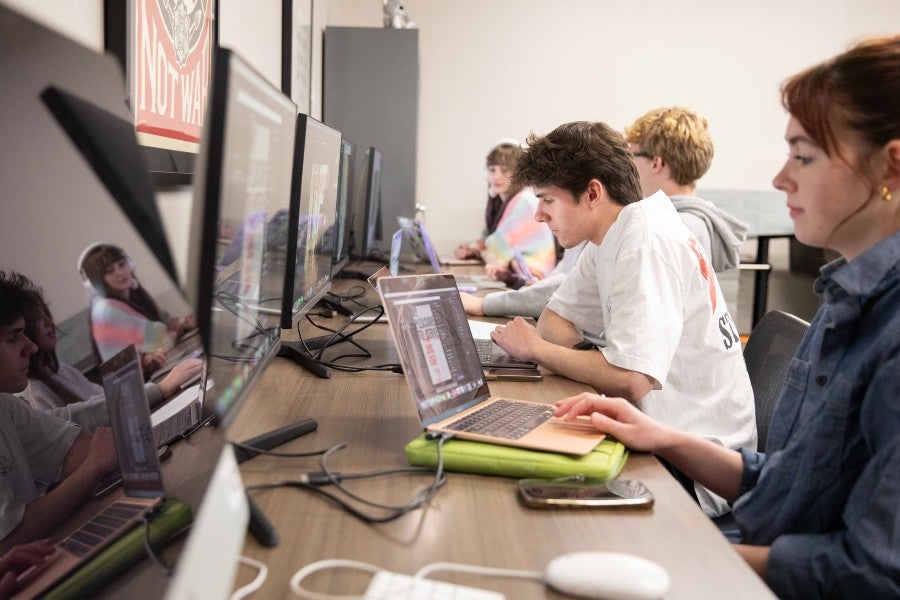
Twenty courses have been designated as diverse perspectives courses and class-wide research projects, called CURES, are encouraged as early as freshman year to boost students’ engagement in curiosity, problem-solving and critical thinking.
Journey: Lipscomb Core takes each Lipscomb student through a 10-step path, studded with four signpost courses: a first-year seminar called Compass, two courses in communication and writing called POWERS and a capstone course called Virtue, Flourishing and Vocation.
In the first third of the Journey, students take the first-year seminar Compass, which includes four common assignments for all students in every section of the course. Nine times throughout the semester, all sections of the course will gather for Compass Point sessions, focused on the themes: who am I?, what is truth, what is the good life, and how do I live well?
At these common sessions, selected faculty will share their knowledge and experiences with students, both introducing students to potential faculty mentors and providing models of critical thinking, creative problem-solving and agile communication focused around the themes of the unit.
“This course is designed to build community within the first-year class, to provide them with a framework to succeed as Christian scholars,” said Shewmaker. “Faculty serve as mentors, offering knowledge, support and inspiration, sharing what we hope for them in this journey and help them to see who they will become.”
In the second third of the Journey, students dive into new ideas and experiences, pushing beyond their comfort zones. Through coursework and campus life, they encounter diverse perspectives. Now prepared for academic challenges, student discover the tools and strengths they possess.
During this phase, students will take the two POWERS courses, which prepare students to become confident and effective communicators across multiple platforms. The courses—Writing to Discover and Communicating to Influence reinforce to students that good communication skills should not be siloed from one situation to another.
Over the course of two concurrent courses, students develop writing and communication skills through both classical and digital approaches, are required to transform one idea across three different communication modalities and have the opportunity to participate in extracurricular events such as contests, symposiums and publications.
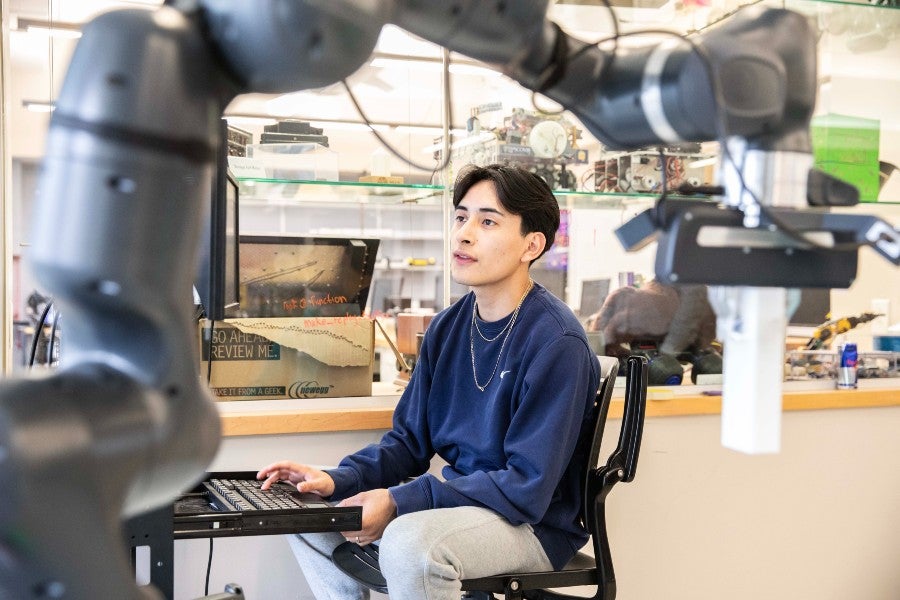
In the final third of the Journey, students apply the wisdom gained in earlier courses to their chosen field of study. Students demonstrate the depth of their learning and integrate new insights into studies in their major.
During this phase, students are able to take the final signpost course: Virtue, Flourishing and Vocation. Developed in discipline-specific sections, this course explores how one's discipline or career can be rooted in and informed by Christian virtue and human flourishing with a focus on vocation and ethics.
The course content includes five weeks of bridge curriculum, common to all sections, that reviews what was learned in Lipscomb’s three required Bible courses—Story of Israel, Story of Jesus and Story of Church. In the final weeks, the course explores applying six “agents of flourishing”—the good, the true, the beautiful, the just and well-ordered, the sustainable and the prosperous—to their chosen profession.
The capstone course is “a definitive spiritual bookend” to the CVD vocational programming and freshman chapel offered in a student’s first year.
For students, the last step of the journey is graduation, when Shewmaker and faculty hope students will carry the wisdom they have gained through Lipscomb’s Journey into their vocation, integrating what they have learned into a flourishing and purposeful life, said Shewmaker.
“Journey gives students a consistent experience to develop an understanding of what it means to be a Lipscomb student and to begin to think of their experience as a journey, to ask what does my path look like as I build my skills, build my knowledge and move toward a vocation that God has called me to,” said Shewmaker.
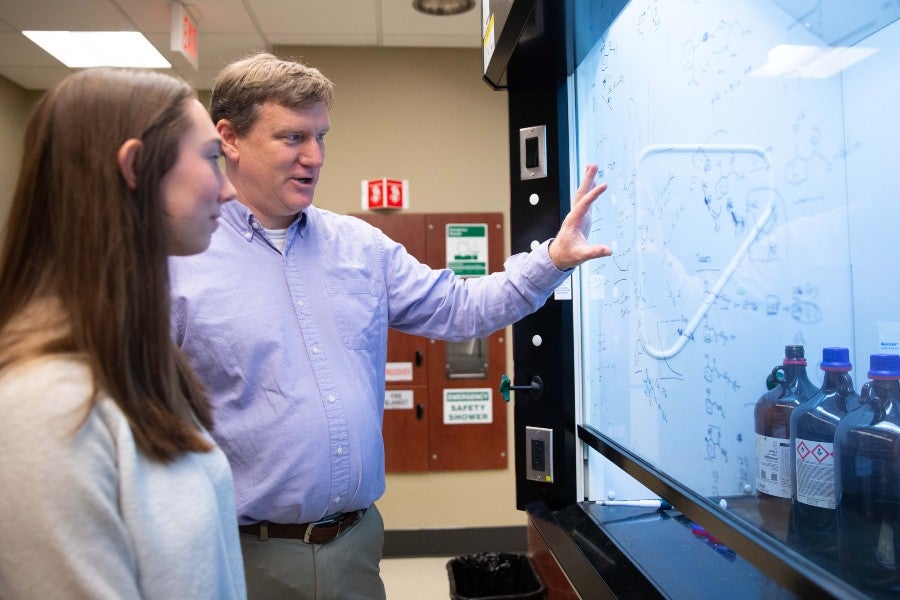
Learn more about how Journey was developed.
Learn more about how Journey connects essential core skills to vocational preparation.